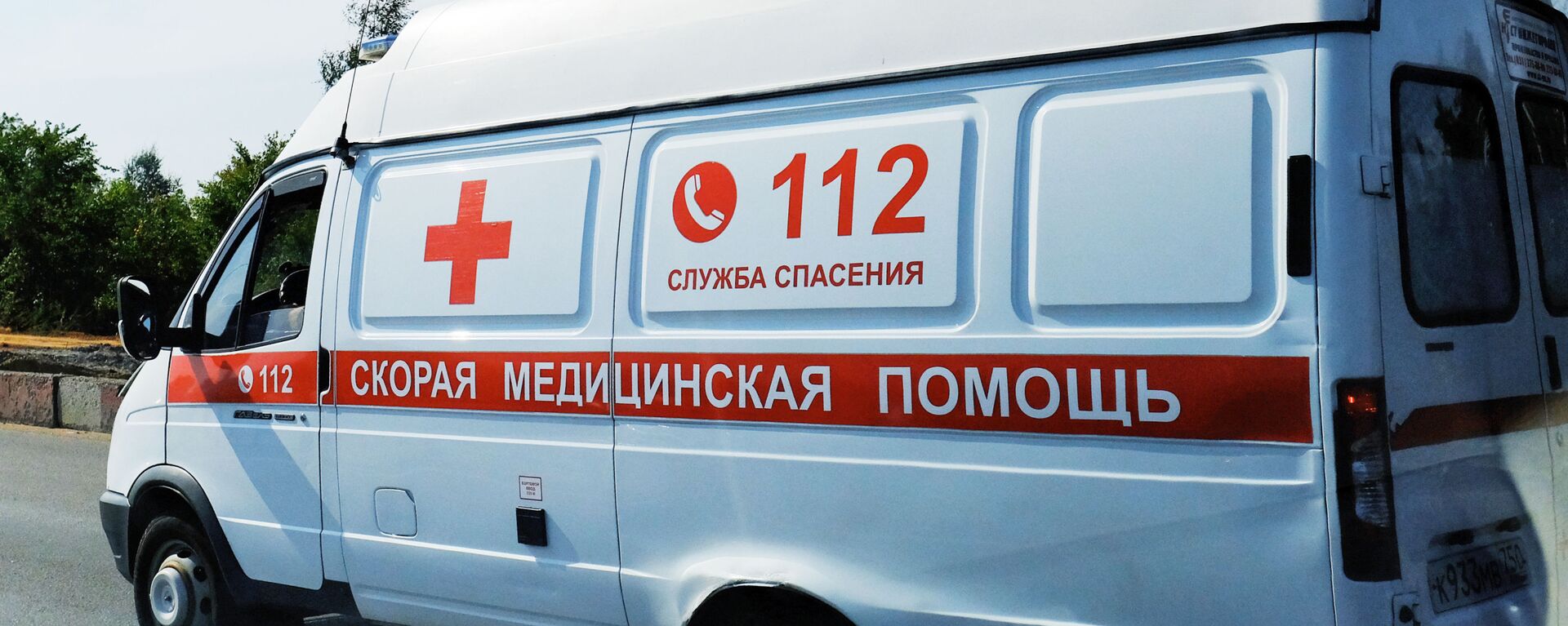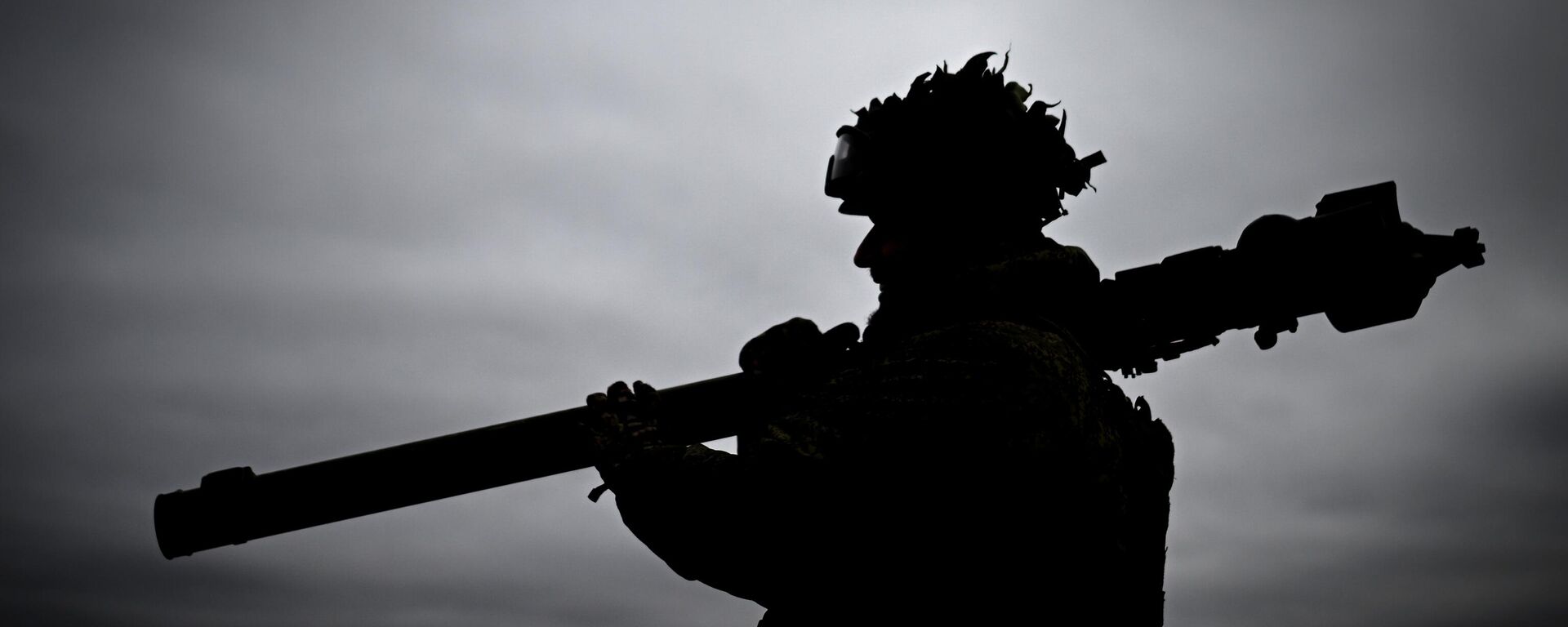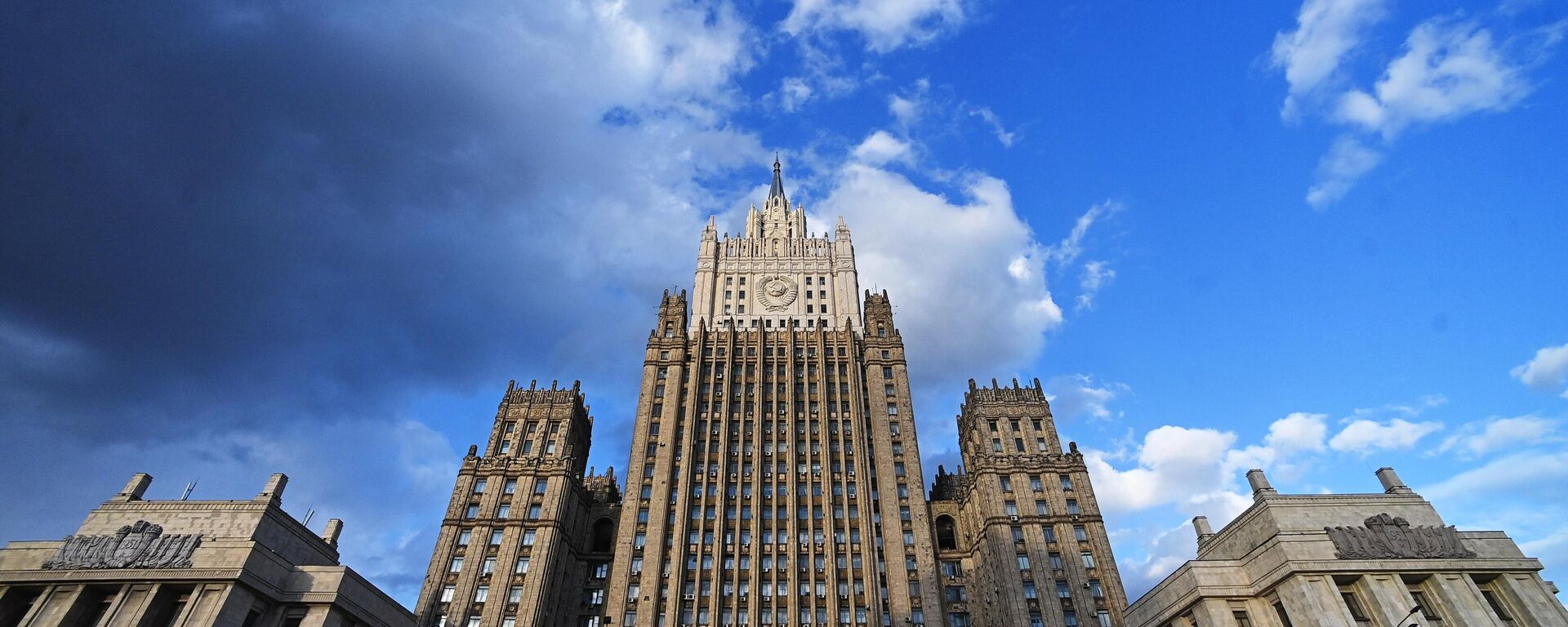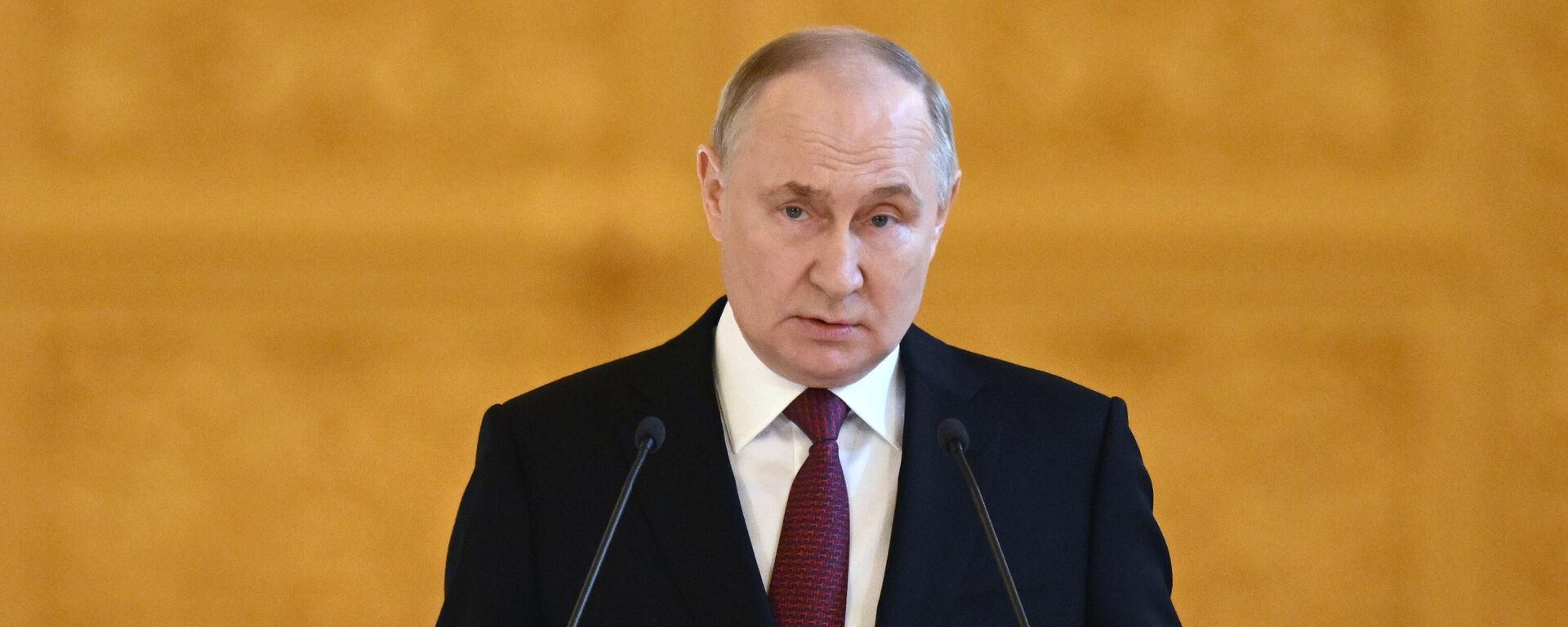Why US and Ukraine Deliberately Chose Russia's Sevastopol for Terror Attack
18:36 GMT 23.06.2024 (Updated: 13:06 GMT 24.06.2024)
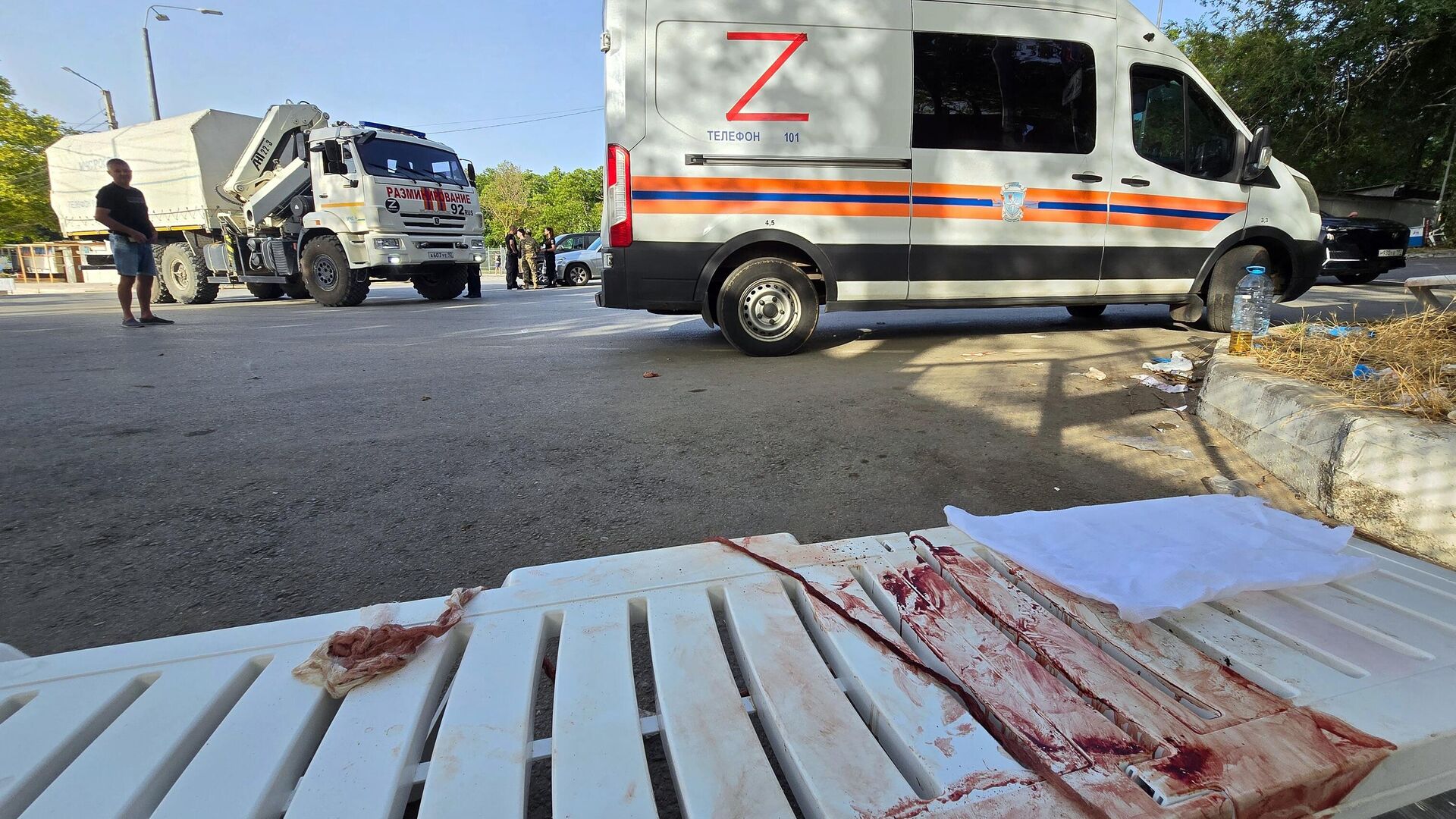
© Sputnik / Konstantin Mihalchevskiy
/ Subscribe
On June 23, Ukraine carried out a deliberate terror attack against Russian civilians in Crimea, the Russian Defense Ministry stated, holding both Washington and the Kiev regime responsible for the strike.
On Sunday at 12:15pm local time Ukraine attacked the Russian city of Sevastopol with five US-made ATACMS (Army TACtical Missile System) rockets armed with cluster bomblets.
Russian air defenses intercepted four missiles, while the explosion of the fifth cluster warhead led to the death of at least five civilians and injured 124, including 27 children, according to the Russian Ministry of Health.
US Cluster Munitions Used Against Civilians
"Fallen cluster munitions hit the beach. There is a high density of people there, hence there are so many victims," Nikolai Kostikin, an expert from the Moscow-based Bureau of Military-Political Analysis think tank, told Sputnik.
The 2008 Convention on Cluster Munitions (CCM) bans the weapons as they pose an immediate threat to civilians by randomly scattering submunitions over a wide area. Their unexploded remnants could endanger the area's inhabitants long after the conflict.
Scott Bennett: Sevastopol beach attack with US ATACMS missiles is a crime against humanity
— Sputnik (@SputnikInt) June 23, 2024
💬 “Today there was an attack upon the Sevastopol beach area in which [several] people have been killed and the number is growing. Two children, a three-year-old and a nine-year-old were… https://t.co/9sECi7i9fX pic.twitter.com/DxkN68XDCp
The New York Times previously reported that each ATACMS missile provided by the US to Ukraine could dispense up to 950 small bomblets. The newspaper specified that the US is not a signatory to the convention.
Kostikin noted that even if Ukraine sought to hit Russian military facilities on the peninsula, it deliberately targeted the missiles to pass over crowded areas, meaning that the efforts to intercept them would still pose a risk of damaging civilian targets. He added that the Ukrainian military has used the same tactic many times before.
Attempts to Intimidate Russians are Futile
Alexey Sukonkin, a Russian military observer, assessed the terror attack as a show of force and the demonstration of the West's support to the Kiev regime.
"The death of civilians fits into this plan as a way to intimidate [Russia]," Sukonkin stressed.
"The ballistic missile was fired at maximum range at Sevastopol, because the city is iconic for [Russians]. They chose the Holy Trinity Sunday [for the attack]. They often do this when people gather," Vasily Dandykin, military analyst and retired Captain 1st Rank of the Russian Navy, told Sputnik.
Dandykin shares Sukonkin's view that the attack was aimed at intimidating Russians and sowing panic within society.
"[Sevastopol] is a city whose population is impossible to intimidate," the military analyst said. "Sevastopol is a long-suffering city. This city is special for Russia's history. It was in Sevastopol that the Crimean Spring began as well as resistance to those who carried out a [2014] coup in Ukraine and openly took the path of Nazism."
Dandykin recalled that on June 22, 1941 Sevastopol was among the first Soviet cities subjected to bombardment by Nazi Germany. He added that the Kiev regime and its Western patrons had no scruples about attacking the Russian territories on the Day of Remembrance and Sorrow commemorated annually on June 22. "Their cynicism is indefinite," he charge.
"Therefore, such a significant blow was dealt [to the city of Sevastopol] after Joe Biden’s statement green-lighting attacks on the Russian territories, including 'old Russia'. Obviously, it is even more important for them than the Crimean Bridge," Dandykin noted.
No-Fly Zone Over Black Sea and Adequate Response to Aggressors
At the moment when ATACMS were launched at Sevastopol a US RQ-4 Global Hawk long-range surveillance drone was detected over the Black Sea, according to military correspondent Aleksey Borzenko.
"This drone was practically used to direct the missiles that were going to Crimea," Borzenko told Sputnik. "I believe that it is necessary to create a large unmanned zone in the Black Sea – between 100 and 300 miles – in the aftermath of the tragedy. These Global Hawks should not be allowed to get to the distance from which they could direct ATACMS missiles."
Russia must give an adequate answer to the Ukraine terror attack on Sevastopol, given that the Kiev regime and Washington as openly defied Moscow's warnings and "red lines", according to Igor Korotchenko, editor in chief of National Defense magazine.
"First, attacks targeting key facilities of the energy structure of Ukraine – which ensures the stability of the rear of the Ukrainian Armed Forces – and their complete destruction should be carried out," Korotchenko told Sputnik.
"The second thing that needs to be done is to establish a no-fly zone in the airspace over waters of the Black Sea, from which UK and US strategic reconnaissance drones are patrolling the territory of Crimea. These targets should be destroyed without reacting to possible statements and screams from London and Washington," the pundit continued.
The Russian Ministry of Defense stated that it holds Washington and the Kiev regime responsible for the deliberate missile strike on Sevastopol civilians, as all targeting data for ATACMS missiles are provided to Ukraine by US specialists. The ministry underscored that the attack will not go unanswered.

